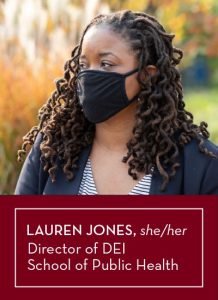Content warning: death, violence against Black people
Originally published in the June 2023 issue of the Notes on Antiracism, Justice, and Equity newsletter.

Is it normal to always worry about being shot? With the significant increase in gun ownership and mass shootings in the U.S., yes, it is, especially for those of us who are racialized as Black. Since 2019, gun violence has become the leading cause of death among children, and Black youth have died from gun violence at more than five times the rate of other youth. Most of those deaths were homicides, but suicide, mass shootings, and police shootings also contributed to that large disparity. I have unfortunately known too many people whose lives were cut short due to gun violence, and it seems like the pandemic only amplified this violence.
For those who are lucky enough to survive being shot, the physical, psychological, and financial costs are massive. According to one study, gunshot survivors spend about $30K on healthcare in the first year after being shot. This does not account for the cost of lost wages, productivity, or unemployment. The lives of the victims’ families are also forever changed. According to the same study, these family members had a 12% increase in psychiatric disorders. The recent shootings of Ralph Yarl and Aderrian Murry, and the killing of Ajike Owens have reminded me how dangerous it is to be Black in the U.S. And the murder of Kaylin Gillis, a young white woman who pulled into the wrong driveway, reinforces the fact that gun violence is about more than hate — the easy access to guns putting us all in danger.
The Second Amendment, which is rooted in anti-Black racism both in its history and its enforcement, is the law that permits gun ownership. The resulting 400 million + guns in America are responsible for accidental shootings, deadly domestic violence, and mass killings in civilian life, including at schools, grocery stores, theaters, and places of worship. Many countries function very well with restrictive gun laws. In the UK, citizens must go through a rigorous process to own guns, which makes it safe for most police to not carry guns. Instead, police can focus on de-escalation and resolution. But the majority of lawmakers in the U.S., with its complicated history of slavery and obsession with individual rights, remain uninterested in curbing gun rights and in fostering a wiser, less violent response.
Many solutions are needed to address gun violence. Some states have enacted bans or restrictions on assault weapons, which are designed for rapid fire in combat. Minnesota’s Governor Walz recently signed a so-called “red flag law,” giving law enforcement officials the right to seize firearms from those who may pose a threat to themselves or others. Unfortunately, all sheriff departments in the state have not agreed to enforce the law. Here 4 the Kids, a movement led by Black and Brown women, recently asked white women to gather at the Colorado state capitol and use their privilege to pressure the governor to ban all guns and create a gun buyback program. While violence is an unfortunate part of life, there are better ways to resolve conflict than guns. Our reliance on firearms to protect our families and property has led to unprecedented harm in our communities, and Black communities suffer more harsh consequences. As public health researchers and practitioners, we should be partnering with communities to imagine how we can co-create safer communities, stronger social safety nets, and better conflict resolution tools.
Resources:
- Talking to kids about gun violence
- The Violence Project: How to Stop a Mass Shooting Epidemic
- 8 Ways To Reduce Gun Violence in Minnesota
Toward justice,
Lauren Jones
Director, Diversity, Equity, and Inclusion
UMN School of Public Health
she/her/hers
—
Sign up to receive the monthly Notes on Antiracism, Justice, and Equity newsletter.
